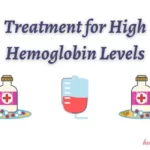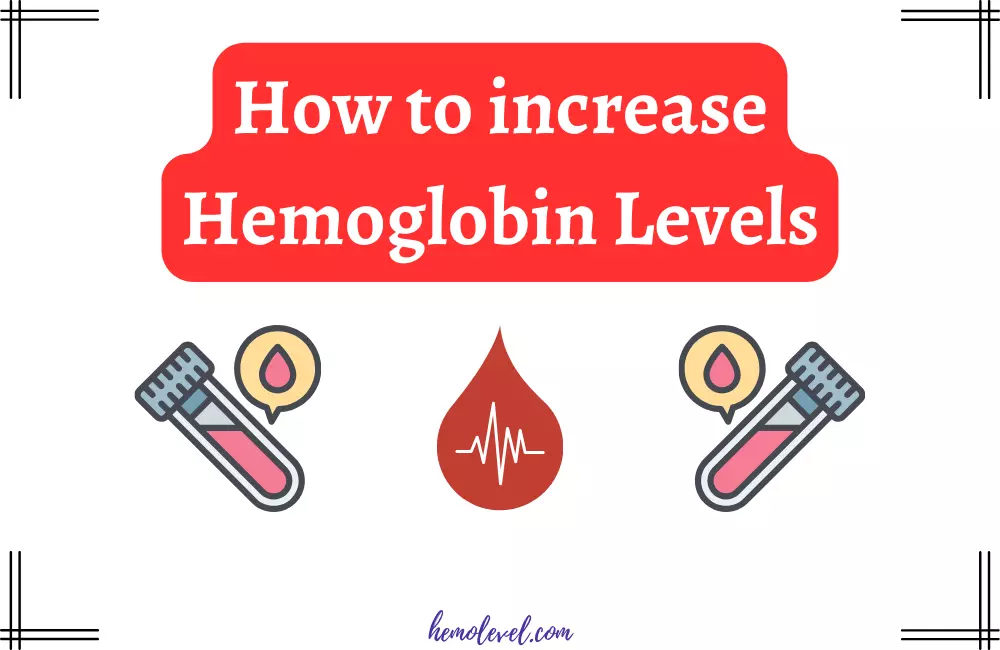How to increase Hemoglobin Levels
Last updated on December 14th, 2023
Introduction:
Maintaining healthy hemoglobin levels is essential for overall well-being, as hemoglobin plays a crucial role in transporting oxygen throughout the body. When hemoglobin levels dip below the normal range, it can lead to anemia and various health complications. In this comprehensive guide, we will explore effective and natural ways to increase hemoglobin levels, ensuring optimal oxygen transport and vitality.
Understanding Hemoglobin and Its Significance:
Hemoglobin, found in red blood cells, is responsible for binding oxygen in the lungs and delivering it to tissues and organs. Adequate hemoglobin levels are essential for energy production, cognitive function, and overall health. When hemoglobin levels drop, individuals may experience fatigue, weakness, and dizziness.
The Importance of Increasing Hemoglobin Levels:
Low hemoglobin levels can lead to anemia, causing a range of symptoms and health issues. By increasing hemoglobin levels, individuals can enhance their energy levels, improve cognitive function, support immune health, and prevent complications associated with anemia.
Effective Ways to Increase Hemoglobin Levels:
- Eating a healthy diet: A diet that is rich in iron, folate, and vitamin B12 can help to boost hemoglobin production. Good sources of iron include red meat, poultry, fish, beans, lentils, and dark green leafy vegetables. Good sources of folate include leafy green vegetables, citrus fruits, and beans. Also, good sources of vitamin B12 include meat, poultry, fish, eggs, and dairy products.
- Taking iron supplements: If you are not getting enough iron from your diet, you may need to take an iron supplement. However, it is important to consult with your doctor before taking any supplements, as too much iron can be harmful.
- Getting regular exercise: Exercise helps to increase the production of red blood cells. Aim for at least 30 minutes of moderate-intensity exercise most days of the week.
- Avoiding excessive caffeine and alcohol: Caffeine and alcohol can interfere with iron absorption.
- Quitting smoking: Smoking can damage red blood cells and make anemia worse.
- Hydration: Drinking an adequate amount of water supports blood volume and circulation, indirectly aiding hemoglobin function.
- Manage Stress: Chronic stress can impact iron absorption and utilization. Practice stress management techniques like meditation and yoga.
- Avoid Excessive Calcium: High calcium intake, especially from supplements, can interfere with iron absorption. Ensure a balanced intake of calcium.
- Consult a Healthcare Professional: If you suspect low hemoglobin levels, consult a healthcare provider. They can conduct tests to determine your levels and recommend appropriate interventions.
Conclusion:
Increasing hemoglobin levels naturally is achievable through a combination of a nutrient-rich diet, lifestyle adjustments, and mindful choices. By focusing on iron-rich foods, vitamins, and minerals that support hemoglobin production, individuals can enhance their overall well-being and vitality. Incorporating these practices into your daily routine can pave the way for optimal hemoglobin levels, ensuring your body’s ability to deliver oxygen efficiently and maintain excellent health. Remember, maintaining balanced hemoglobin levels is an ongoing commitment to your health and vitality.
Also Read:
- Most Common Questions on Hemoglobin Levels

- Myths about increasing Hemoglobin Levels

- Treatment for High Hemoglobin Levels: How to Lower Your Levels Safely

To know more about Hemoglobin Levels, visit Hemolevel.com

5 thoughts on “How to increase Hemoglobin Levels”
Comments are closed.